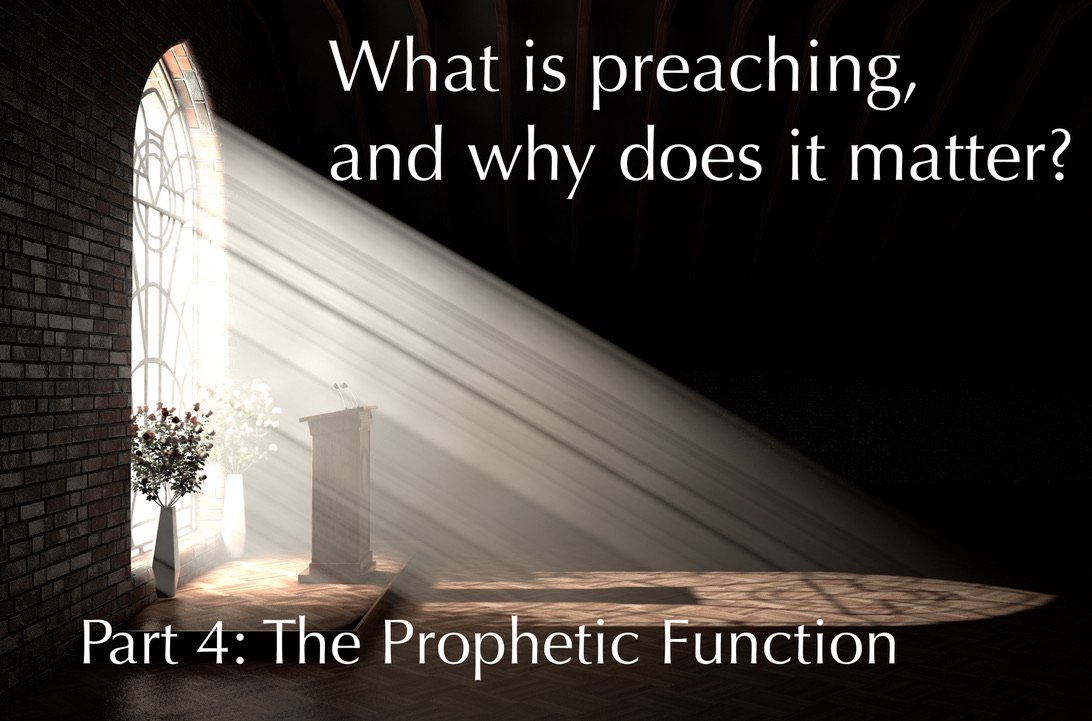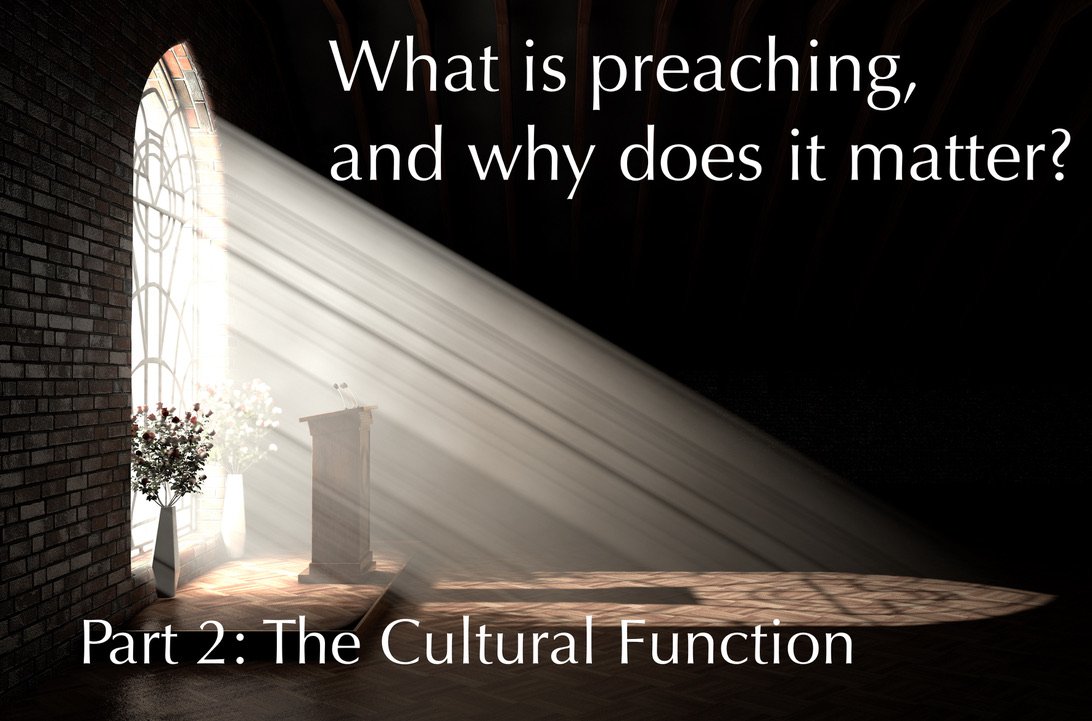
Preaching Names Our Brokenness
This is the prophetic function of preaching: naming our brokenness. Peeling back the layers of our denial, our deflection, and our self-deception to give a name to the self-destructive inclination of our hands, our heads, and our hearts. Why does this matter? Because only when our rebellion is named can we repent of it. And only when we repent can we experience redemption. And only through redemption can we enjoy restoration. Naming our brokenness is the at the trailhead to the only possible path to wholeness, healing, and grace.

Preaching Creates Culture
Preaching matters because preaching creates culture. Just being aware of this fact should move us towards meaningful and regular reflection on the question, “what kind of culture is my preaching creating?”

Andy Crouch: Why We Can’t Change the World
The conversation on Christianity and culture has been enriched and stimulated in recent years by the insights of Andy Crouch. In his book, Culture Making: Recovering our Creative Calling, Crouch has offered his own taxonomy of Christian responses to culture. He identifies four strategies for cultural change, based primarily on the record of American Evangelicals in the past century.

Think Like a Missionary
In the interests of full disclosure, I should acknowledge that my missionary vocation and experience profoundly influence how I think about preaching and culture. I spent my teen years as a missionary kid in Central America. I have spent most of my adult life as a cross-cultural missionary as well. By default, I tend to think like a missionary.
“Thinking like a missionary” will kill any tendency to see culture as a monolithic beast to slay.

Moving Beyond “Christ and Culture”
You would be hard pressed to find a major discussion about Christianity and culture in the second half of the Twentieth Century that does not reference the work of ethicist H. Richard Niebuhr. His book Christ and Culture, published in 1951, defined the conversation for a generation. The book had wide and lasting influence for at least two reasons. First, it addressed a topic that many Christian thinkers considered to be of utmost importance. Second, it provided clear and satisfying handles for talking about ways Christians might respond to culture.

Warriors, Pacifists, and Diplomats: Preachers and Culture
A handful of choices define every preacher. From where will the message come? Will it offer answers gleaned from the social sciences, public opinion polls, celebrity talk show hosts, or political dogma? Or will it flow from the acts and words of God discovered and experienced in the Scriptures? What will the preacher’s sermons do? Will they instruct, leading to better informed hearers? Should they offer perspective, encouragement and comfort, leading to better adjusted hearers? Will they admonish and exhort, leading to better behaved hearers? Or will they seek transformation, leading to simply better, reborn, hearers?
These and other key issues fill the pages of every good Homiletics textbook. One question, however, which can, in subtle but powerful ways, define and drive a preaching ministry, is often overlooked: What is the preacher’s, and the sermon’s, relationship to culture? The answer to this question will make all the difference in the direction a preacher’s ministry will take.

